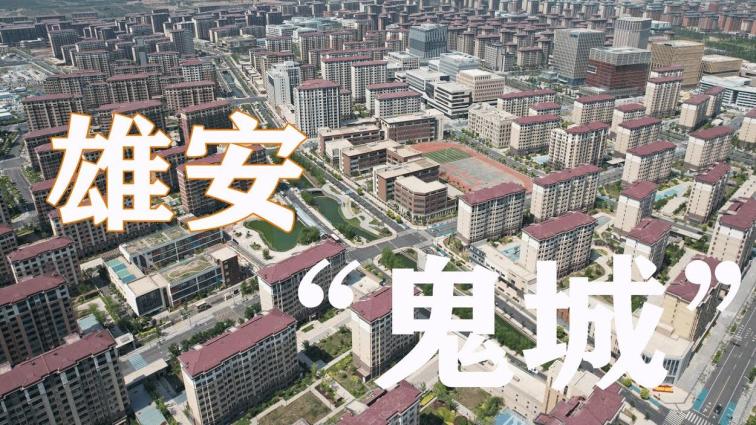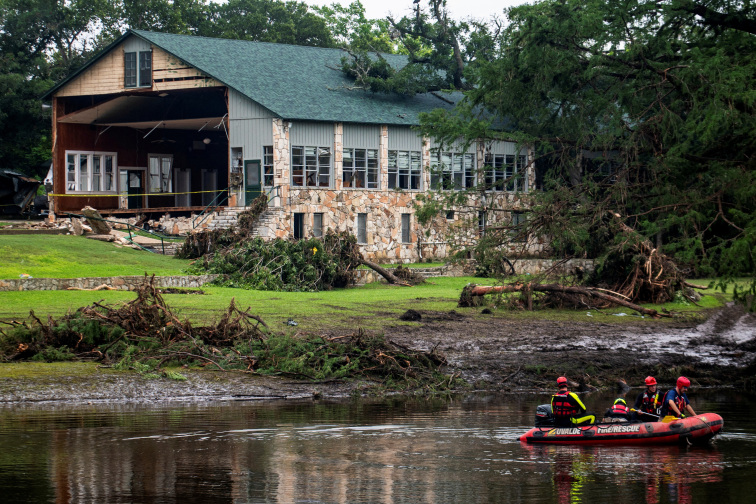A netizen pointed out that every February and March, the Chinese Communist Party (CCP) introduces real estate policies not to save property prices, but to trap more families. Many are suffering massive losses and being slowly "boiled like frogs in warm water." (Screenshot from video)
[People News] Once the locomotive of China’s economy, the real estate market across urban China is now facing a situation even worse than a “halving” of property values. This crisis has also spread sideways to related industries, creating widespread misery. Even economists are saying that real estate has become “the biggest drag on China’s entire economy.” Some netizens have noticed that the CCP’s so-called rescue policies are actually a trap — a “please enter the urn” (a Chinese idiom meaning a deliberate trap) — to lure people into buying property and getting trapped, so that developers and banks remain stable and systemic financial risks are avoided.
The blogger "Bobo Wang Financial News" pointed out in a recent video that China has set a “please enter the urn” trap to lure naive homebuyers into being trapped. He said: “Every February and March, a large number of favourable real estate policies are introduced, and the news is flooded with hype, promoting the so-called 'property market spring,' making you feel as if you don’t buy now, you’ll miss out. But property prices usually hold up for only two months before collapsing. By May, the data usually hits back hard — prices keep sliding down, and those who bought in are trapped. Think about it — doesn’t this smell like a trap?”
He further analysed: “Actually, rescue policies aim to save developers and banks, not the price of your apartment. You might just become the medicine used to save them. What does that mean? The biggest fear for banks is large-scale mortgage defaults, which could trigger systemic financial risks. Buyers’ psychological bottom line for continuing to pay mortgages is that their home value must at least be higher than their remaining loan principal — that’s what motivates them to keep paying. So the purpose of all these 'favourable' policies isn’t to raise home prices and help you break even — it’s to prop them up just enough to fall slowly. That way, your loan balance drops a bit each month, you still feel some hope, and like a frog in warm water, you’re slowly cooked. As long as you keep paying, the banks stay stable.”
Another blogger, “Shanghai Xiao Zhu,” said in a recent video: “Don’t buy a house in 2025. I’ve looked at transaction data from hundreds of neighbourhoods in Shanghai and reached one conclusion — it’s just too miserable! In 2025, to sell a house, you’ll need to price it at least 5% lower than the cheapest current listing in your community just to have a chance. If it doesn’t sell, you’ll need to keep cutting. Many homeowners are nearly collapsing mentally. So I advise: unless you urgently need cash, don’t sell in 2025. But here’s the problem — listings of second-hand homes are still increasing. The market bottom for used homes keeps falling. Selling this year is already hard, but next year and the year after will be even harder.”
Yet another blogger, “Lao Ye – Guangzhou Real Estate,” recently said: “Overnight, Guangzhou’s property prices have fallen faster than a diving board. Do you know how brutal the price drops are? In the video, some buildings in Baiyun District’s Taihe area — right next to a subway station — were originally priced at 530,000 yuan per unit when launched. Now they’ve plummeted over 70%, selling for just 218,000 yuan in full. It’s heartbreaking for the original owners.”
Beijing financial blogger “Nervous Croquette” posted a video titled “Even Losing 1 Million Yuan, You Still Have to Smile!” filmed on-site at the "Rhine Valley" community by the Yongding River. He said that despite its excellent location, the prices have dropped so badly they’re unrecognisable. Basically, homes bought for 1.8 million yuan are now worth only 700,000 to 800,000 yuan. Even in prime locations, this level of loss is now the norm.
According to data from the “Anjuke” website, the average listing price in July for Yongding River Peacock City Phase 8 (Rhine Valley) was 6,157 yuan per square meter, down 1.12% from the previous month. Another site, “Fang.com,” lists the average price at 8,221 yuan per square meter — also in a continued downward trend. During the market peak, prices here reached 15,000 to 20,000 yuan per square meter, so it’s common now for each unit to have lost close to one million yuan in value.
Furthermore, a self-media blogger from Wuhan recently stated that nationwide data shows Wuhan’s second-hand housing prices have fallen the most among all cities in China, with a staggering 52% drop, ranking first in the country. As someone who purchased a home in full, she recently visited several residential communities in Wuhan and found that the “lights-on rate” was heartbreaking — entire buildings were completely dark, indicating a massive number of vacant homes. She said, “The streets are full of empty houses. Supply far exceeds demand. Why wouldn’t prices fall?” She also questioned the current employment landscape and people’s purchasing power, implying that many are struggling financially. Her pessimistic outlook: “It’s only going to get worse — halving is just the beginning. The road to deflating the bubble is still very long.” Some homeowners in urgent need of cash have no choice but to sell, watching with heartache as their property values plummet day by day. Homes that once sold for 1.08 million yuan are now being “dumped” for just 300,000 yuan. Yet even at such drastic discounts, selling is becoming increasingly difficult.
In response, a netizen named “Qin Yue” on People’s Report commented: “In other countries, owning a home symbolises having wealth and achieving a life goal. But under CCP rule in mainland China, it has become a nightmare.”
As the real estate market collapses, the pain is not only felt by the general public who have tightened their belts to buy property. Even the once glamorous entrepreneurs in related industries have been overwhelmed. In recent months, multiple unnatural deaths of business figures have been reported. For example, in just June and July alone, at least four prominent business owners died by suicide: July 27: Wang Linpeng, 57, chairman of the leading home furnishings company Easyhome, jumped to his death. July 17: Zeng Yuzhou, known as the "Godfather of Home Interiors" in Guangzhou, also jumped to his death. July 3: Shen Kangming, a director of Zhejiang Construction Investment Group, died by suicide. June 2: Liu Wenchao, 54, chairman of Xizi Elevator, also took his own life.
These individuals were all from industries closely tied to real estate, suggesting they faced tremendous, often invisible hardships after the market collapsed. The pressure became unbearable, and with no way to save themselves, they were driven to the brink. The ripple effect of the real estate crash may soon reach lighting, appliances, glass, timber, and other upstream and downstream sectors. If those industries fall into insolvency, even more tragedies may occur.
According to a video circulating online, renowned Chinese economist Xiang Songzuo expressed deep regret this past May. He recalled that back in 2011–2012, while serving as chief economist at the Agricultural Bank of China, he had repeatedly warned in public that “China’s real estate sector cannot continue this way.” The "crazy lending" by commercial banks to the real estate sector in 2012 left a deep impression on him. At the height of the property boom, 42% of China’s total social financing was funnelled into this single sector — a clearly unsustainable situation. He soberly remarked that everything has already been overdrawn. Now, real estate has become “the biggest drag on China’s entire economy,” resulting in massive local government debt, huge household liabilities, and a mountain of non-performing loans held by banks.
He admitted, “In the past, I felt embarrassed to say this, and I didn’t have the authority to say that we made a huge mistake. But today, we must face the consequences.” He noted that the peak total market value of China’s real estate was once claimed to exceed 400 trillion yuan, and some even claimed 500 trillion. He warned, “This is going to fall by half. So what will China’s economy look like then? We are all very anxious right now…” △










News magazine bootstrap themes!
I like this themes, fast loading and look profesional
Thank you Carlos!
You're welcome!
Please support me with give positive rating!
Yes Sure!